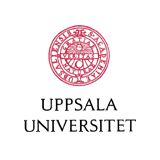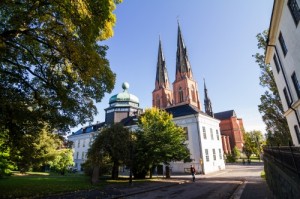ISHTIP
International Society for the History and Theory of Intellectual Property
8th Annual Workshop
CREATe, University of Glasgow, UK
July 6-8, 2016
‘Intellectual Property and Resistance’
Programme: Click Here
In 2016, ISHTIP will be hosted by CREATe, the RCUK Copyright Centre, University of Glasgow, Scotland, UK. Scotland was the home of booksellers such as Alexander Donaldson who sought to resist the monopolistic practices of their established London-based rivals, in the so-called Battle of the Booksellers of the eighteenth century. The patriotic Scottish booksellers, newcomers to the trade, sold cheap reprints of books sold by the London booksellers, including those in which statutory copyright, under the Statute of Anne 1710, had expired. The London booksellers responded with a series of lawsuits culminating in Donaldson v. Becket (1774), relying inter alia on copyright at common law, against which the Scots resisted. As Donaldson expressed in petitioning the House of Commons in 1774: ‘your petitioner has had to struggle with the united force of almost all the eminent booksellers of London and Westminster… above one hundred of the most opulent booksellers… have in their turn, been plaintiffs against your petitioner’. The resulting cases and more general debate about the nature of literary property are today remembered as a historic occasion on which the nature of copyright, as well as the more general notion of property in intangibles, was fully debated.
Taking the theme of ‘resistance’ as its starting point, we intend the 8th Annual Workshop to be a further occasion for the full debate of the theory and history of intellectual property!
The Call for Papers
In autumn 2015, we published a Call for Papers inviting abstracts for papers exploring the theme of resistance in the broadest sense, in relation to any aspect of the history or theory of intellectual property law, in particular, but not limited to: historical or theoretical research that provides a basis for resisting dominant conceptions of IP law, its theory or history, or resisting claims relating to its timelessness or universality; historical or theoretical papers exploring IP law as empowering resistance to dominant social or cultural norms or relations of social power; historical or theoretical research into local diversity in IP laws (legislative, judicial and/or bureaucratic approaches) resisting moves towards international, imperial or regional harmonisation; historical and theoretical insights into modes of resistance to IP law, its enforcement and/or its exploitation. We sought a broad representation of international scholars as well as scholars from across the disciplines, addressing any aspect of intellectual property law from a historical or theoretically-informed perspective. Both established and junior scholars were encouraged to submit abstracts. We requested that papers be unpublished and not accepted/under consideration for publication elsewhere, as it is expected that the best papers will be published in a special issue of an academic peer-reviewed journal or an edited collection.
The Workshop Programme
The accepted papers are set out in the draft programme. As arrangements are still in progress, we reserve the right to make small changes to the programme. Authors do not present their papers at ISHTIP workshops. Instead, a commentator presents a brief summary and critique to initiate the general discussion of each paper. The name of the commentator for each paper is also indicated in the draft programme.
Registration and Cost
The Workshop is open to scholars and students of any academic discipline. To register your attendance, please do so through our Eventbrite page which can be accessed here.
The conference fee is £80, which includes the cost of the conference dinner at Trades Hall. CREATe are operating a bursary scheme for unfunded applicants for whom the fee may present an obstacle to attending the conference. For further details please contact us at ishtip@create.ac.uk
Accommodation
The Workshop will take place on the main university campus, close to the School of Law (The Square, Glasgow, G12 8QQ). The hotel we recommend is the Hilton Grosvenor, Grosvenor Terrace, G12 0TA. We have asked the Hilton to hold some rooms for conference attendees (under ISHTIP2016, University of Glasgow). The rate to be offered is £155 single occupancy (£10 extra person supplement). You can book rooms at the Hilton here using the promo code ‘GISHT’. Reservations need to be made before 31 May!
Another option is The Grand Central Hotel, 99 Gordon Street, Glasgow, G1 3SF – guests to call 0141 240 3700 or email grandcentral.reservations@principal-hayley.com in order to make their reservations here. Again we have a room allocation. Please quote ISHTIP2016, University of Glasgow. Prices vary per day between £140-£180 for single occupancy.
You can find other options on-line (e.g. through airbnb, Expedia, Booking.com etc.)
Questions
Programme: Click Here

 Uppsala, Sweden July 2-4, 2014
Uppsala, Sweden July 2-4, 2014 Queen Mary Journal of Intellectual Property – Special ISHTIP 2014 Issue
Queen Mary Journal of Intellectual Property – Special ISHTIP 2014 Issue
 Research Centre of Bocconi University, Milan.
Research Centre of Bocconi University, Milan.